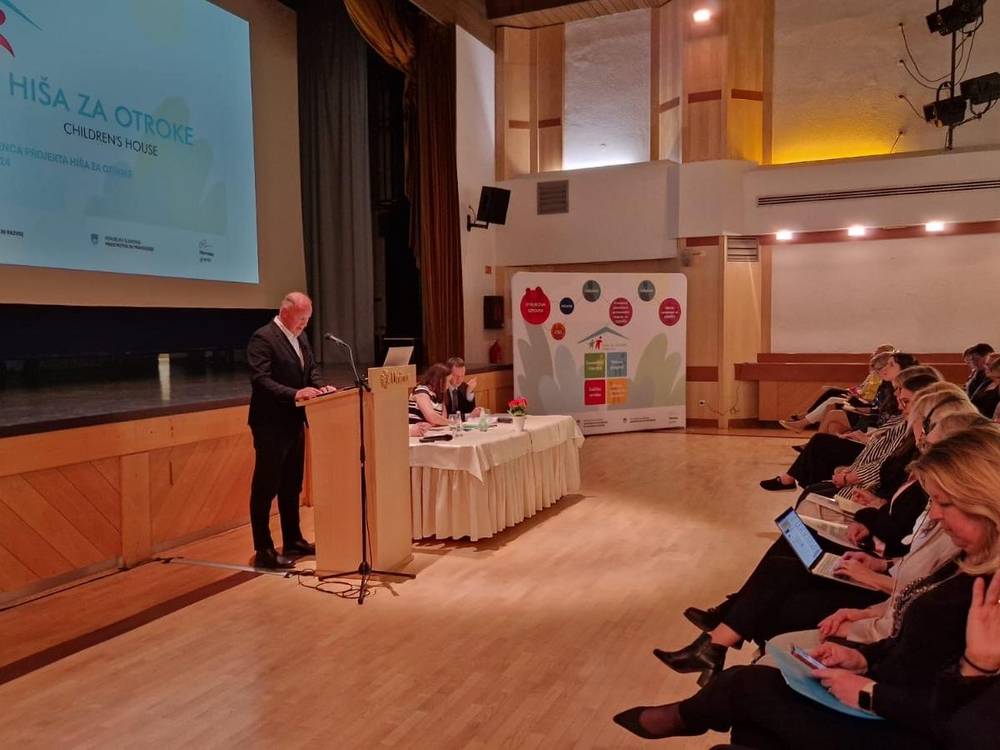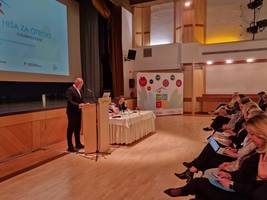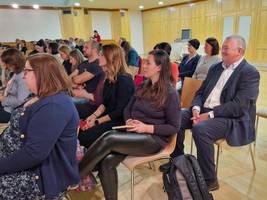Today, 10 April 2024, Deputy Ombudsman Dr Jože Ruparčič, responsible for children's rights at the Ombudsman, attended the closing conference of the Hiša za otroke (Children's House) project in Zreče.
The Human Rights Ombudsman (Ombudsman) was among the first in Slovenia to support activities related to the establishment and operation of the Hiša za otroke, with which the state guarantees special and comprehensive treatment in criminal proceedings to children who are victims of crimes against sexual integrity, The Ombudsman regularly advocates for the strengthening of child-friendly justice and for the fact that the child's rights are taken into account, that the child is treated as a subject in various systems and institutions, and not as an object of rights. "This project is a bright example of child-friendly justice, as children are guaranteed only one hearing, or that they receive as few hearings as possible by qualified experts. It is especially important that the entire treatment at the Hiša za otroke also means crisis support and psychosocial help for children, which is provided by qualified counsellors. We would like child-friendly justice to be strengthened in other areas as well, especially in family proceedings. It is important that we all realise that our common goal is to ensure the greatest benefits for children," the Deputy Ombudsman pointed out.
The holistic treatment of children in the Hiša za otroke strives to achieve the greatest benefits for children. This is also an international standard defined in international conventions, such as the United Nations Convention on the Rights of the Child and the so-called Lanzarote Convention, i.e. the Council of Europe Convention on the Protection of Children Against Sexual Exploitation and Sexual Abuse. Seeking the best interests of children in all procedures in which they are involved is therefore their right. "If we understand human rights as defined in the relationship between the individual and the state, the child's rights must be understood in the triangle between the child, the family, and the state. By reducing the fear of secondary victimisation and misunderstanding, and knowing that in such difficult cases the justice system is adapted to children, it will be easier for many victims or witnesses to decide whether to hang up the phone or go to the police station and report the crime," added Dr. Ruparčič.



![[Translate to English:] Zaključna konferenca projekta Hiša za otroke [Translate to English:] Zaključna konferenca projekta Hiša za otroke](/fileadmin/_processed_/0/5/csm_Hisa_za_otroke_3_59d57ac609.jpg)